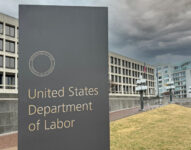Agencies Issue Health Plan Guidance: Preventive Services, Contraception, Cybersecurity
Recently, the Departments of Health and Human Services (HHS), Labor (DOL), and Treasury proposed new regulations aimed at promoting access to contraception. Separately, the Internal Revenue Service (IRS) and DOL recently published additional pieces of guidance affecting health plans. Self-funded health plan sponsors in particular should review these proposed rules and recent notices and determine […]













